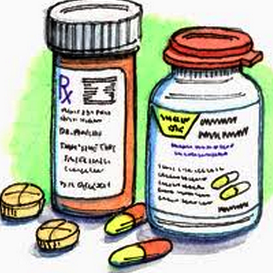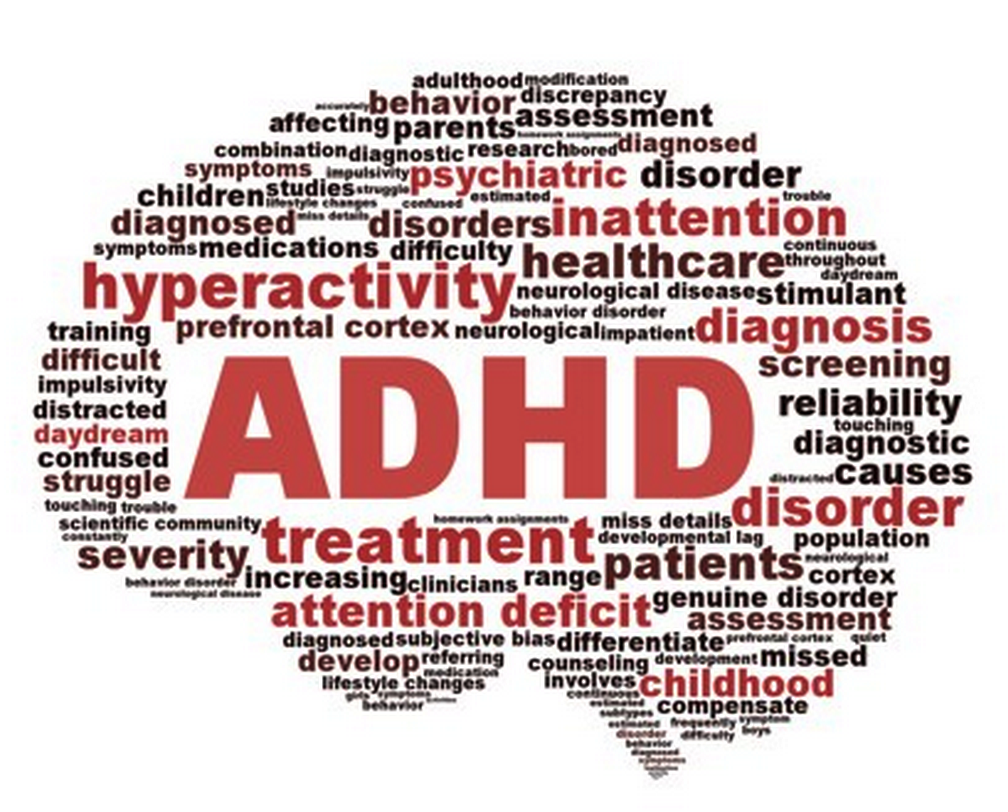ADHD and substance abuse events | New Research for Mental Health

 Use of medications to treat attention-deficit/hyperactivity disorder (ADHD) is associated with a lower current risk for substance-related events.
Use of medications to treat attention-deficit/hyperactivity disorder (ADHD) is associated with a lower current risk for substance-related events.
"When doctors are weighing the risks and benefits of ADHD medication, they might want to consider our study, which provides more documentation that these medications are not likely to increase substance-related problems," ...
...study author Brian D'Onofrio, PhD, Indiana University, Bloomington, told Medscape Medical News.
The results, said Dr D'Onofrio, may be reassuring for psychiatrists.
"There's a huge concern among some in the medical profession and the general public that ADHD medication causes substance abuse."
"There might be subsections of the population where that might be true, but our findings are not consistent with the hypothesis that taking ADHD medications actually causes people to have more substance-related problems."
The study was published online June 29 in the American Journal of Psychiatry.
In what is reportedly the largest study yet to examine whether ADHD medications are associated with differences in risk for substance-related problems, the investigators used the Truven Health MarketScan Commercial Claims and Encounters (MarketScan) databases of deidentified inpatient, outpatient, and prescribed drug claims.
From this resource, the researchers identified almost 3 million individuals aged 13 years or older who received either an ADHD diagnosis or treatment for ADHD with a stimulant or with the nonstimulant atomoxetine (Strattera, Lilly) from 2005 to 2014.
The mean age of the study group was about 25 years. The patients were followed for about 16 months.
The investigators first compared substance-related events in people with ADHD to those in persons without the disorder. They identified these events through health insurance claims for emergency department diagnoses of a substance-related problem.
"We know that ADHD is associated with a host of negative outcomes, including substance-related problems," said Dr D'Onofrio. "When you look at medications, you have to consider whether the indication for the medication ― the diagnosis itself ― is associated with these bad outcomes."
They found that male and female ADHD patients were more likely to have at least one substance-related event than were male and female control persons (2.69% increased odds for males; 3.30% increased odds for females)
The researchers also investigated associations between ADHD medications and substance-related events. These associations were distinguished on the basis of the sex of the patients.
In both sexes, they carried out population-level and within-individual examinations in ADHD patients with and without prior substance use disorder, with no other psychiatric medications, and with no psychotherapy. They also investigated first events only.
In the within-individual models, the researchers compared periods during which medications were used with periods during which no medications were used.
"Because each individual served as his or her own comparison, these models were free of confounding from all factors that were constant within the individual over time (eg, genetics, earlier environmental influences," they add.
In addition to concurrent associations (ie, associations occurring within the same month), the researchers identified associations between ADHD medication use and substance-related events occurring 2 years later.
At the population level, the adjusted odds of substance-related events were 19% lower among male patients and 11% lower among female patients during months in which medications were used relative to months in which they were not used.
In within-individual comparisons, adjusted models showed that use of ADHD medication was associated with 35% lower odds of concurrent substance-related events among men and 31% lower odds among women.
A number of sensitivity analyses supported these associations. For example, among patients with prior diagnoses of substance use disorder, the concurrent associations were somewhat attenuated but remained statistically significant, except in the unadjusted model for male patients.
Importantly, starting and stopping use of antidepressants were not associated with fewer substance abuse events.
"One of the things we struggled with in this paper was whether the lower substance abuse events were just a matter of going on or off any type of medication, and we found that there seems to be something specific about the ADHD medications," said Dr D'Onofrio.
In the long-term examination, adjusted population models showed minor increases in risk for substance-related events among female patients. However, in adjusted within-individual models, ADHD medication predicted a 19% reduction in the odds of substance-related events 2 years later among male patients and a 14% reduction among female patients.
"Even when the results failed to support reductions in risk, we found almost no evidence that medication increased risk of substance-related events, including among those with pre-existing substance use disorders" the authors note. The researchers were not able to differentiate between stimulant and nonstimulant ADHD medications because, said Dr D'Onofrio, "the overwhelming majority of people were prescribed stimulants." The apparently weaker long-term associations suggest that at least some risk reduction may dissipate over time, according to the authors.
The researchers were not able to differentiate between stimulant and nonstimulant ADHD medications because, said Dr D'Onofrio, "the overwhelming majority of people were prescribed stimulants." The apparently weaker long-term associations suggest that at least some risk reduction may dissipate over time, according to the authors.
Although long-term associations were less clear among female patients relative to male patients, Dr D'Onofrio stressed that "it wasn't as if the medication was associated with more of these events in females." The authors note that the study sample was not nationally representative and that differences in associations may reflect characteristics of the patients that were included in the study.
They also note that more female ADHD patients received other psychiatric medications and psychotherapy than did male patients. This, they add, raises the possibility that self-referral for comorbid psychiatric problems may have increased the number of adult female patients that were included in the study.


